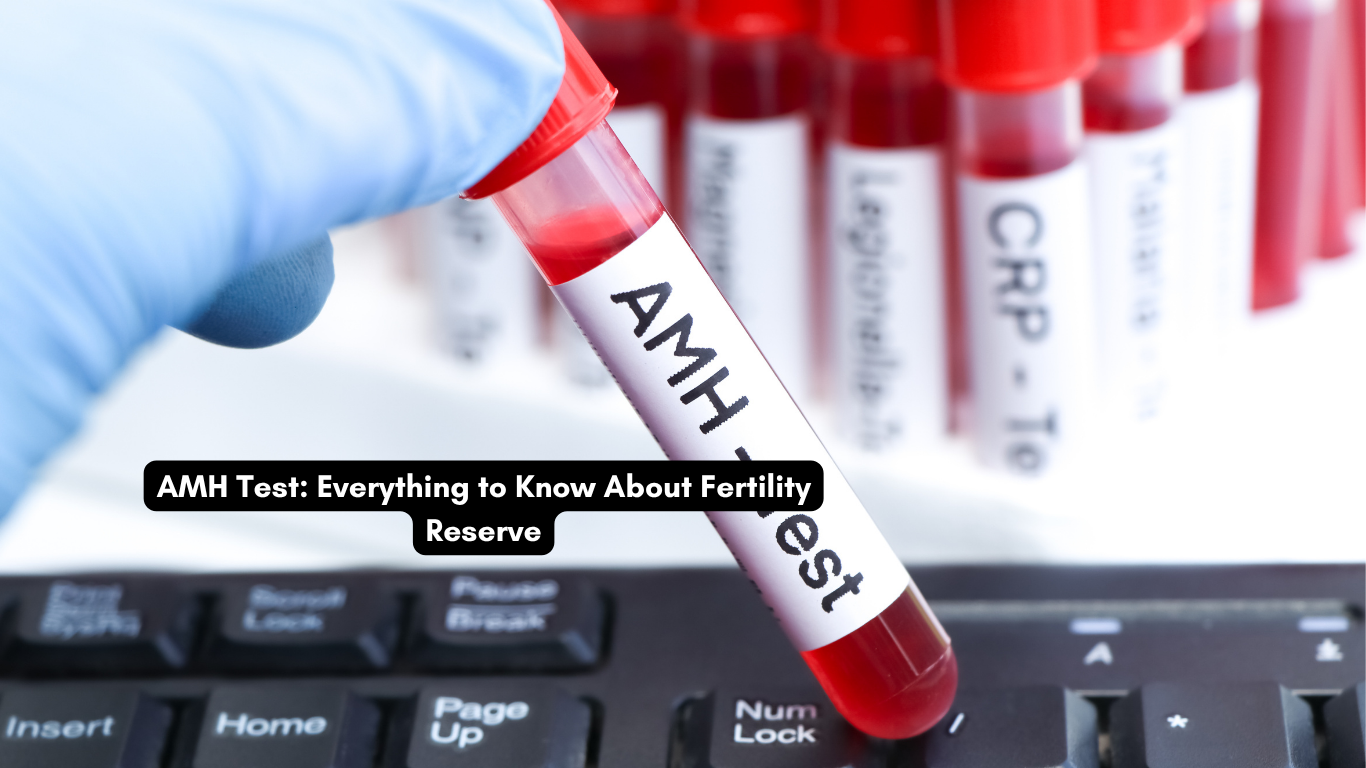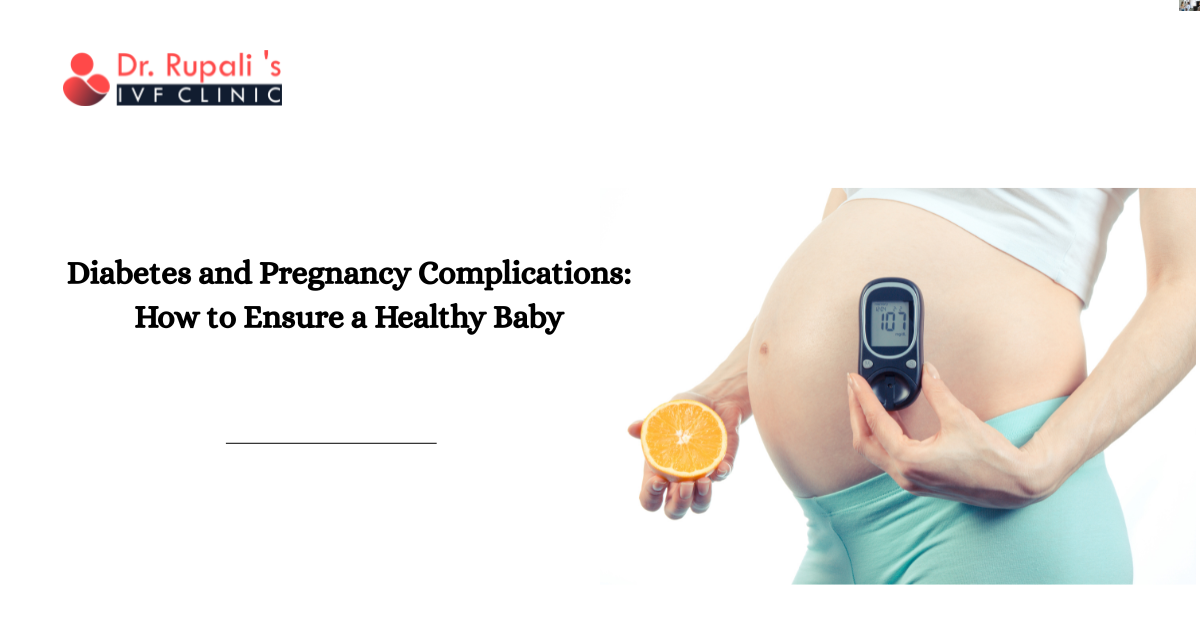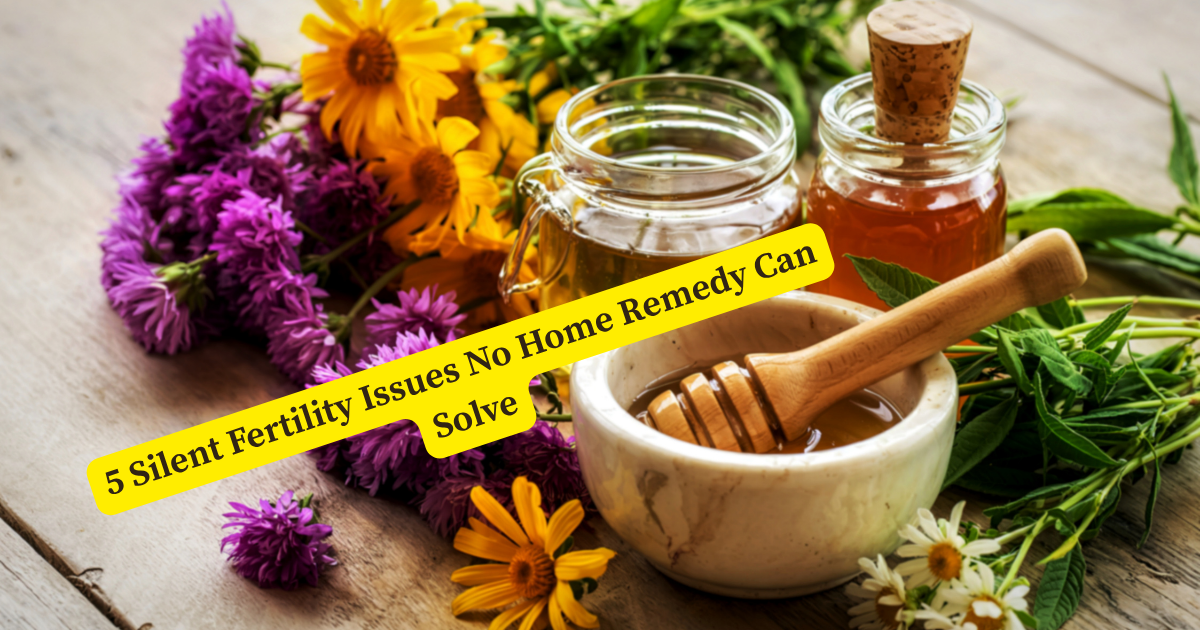
Have you ever wondered what your “fertility reserve” really means? It’s like having a savings account of eggs, and one key way to peek inside that account is through the Anti‑Müllerian Hormone (AMH) Test. Think of AMH as the balance indicator: it doesn’t tell you everything (like how good the eggs are), but it gives you a sense of how many you might still have.
In this article we’ll walk you through everything—from what AMH is, how the test works, what the numbers mean, and how this ties into fertility treatments. If you’re looking for guidance, especially from the best ivf specialist in New Delhi, we’ll touch upon that too. Let’s dive in.
1. What is the AMH Test?
The AMH test measures the level of anti-Müllerian hormone in your blood. In women, this hormone is produced by developing follicles (little sacs in the ovaries that contain eggs).
In simple terms: imagine your egg reserve is like a jar of marbles. AMH gives you a rough idea of how many marbles are still left in the jar-- but not how perfect each marble is.
2. Why Measure Your Fertility Reserve?
Measuring ovarian reserve (your "egg count") can help you and your doctor make decisions. For example:
Understanding how many eggs you may have left.
Estimating how you might respond if you decide to go for fertility treatments like IVF.
Planning ahead (for example if you're considering delaying pregnancy or freezing eggs).
Of course, knowing your reserve doesn't guarantee anything-- but it gives you a heads-up, like your fertility-reserve "fuel gauge".
3. How the AMH Test Works-- Simple Breakdown
You go for a blood draw (usually any day, since AMH is relatively stable).
The lab measures your AMH level (usually in ng/mL).
Your doctor interprets it in the context of your age, fertility goals, overall health, and other tests.
It helps forecast how your ovary might respond, especially if you plan to undergo treatments.
OUP Academic
Think of it like a soil test before planting a tree: it tells you about the ground (reserve) but not the weather or the tree's lifespan (egg quality/ pregnancy outcome).
4. Interpreting AMH Levels: What Do the Numbers Mean?
Here are some general guidelines:
Higher AMH → more eggs left.
Lower AMH → fewer eggs left; your "egg jar" may be running low.
According to one source:
Around 25 years: ~ 3.0 ng/mL
Around 30 years: ~ 2.5 ng/mL
Around 35 years: ~ 1.5 ng/mL
Around 40: ~ 1.0 ng/mL
However: cut-offs vary across labs, and the key number is your trend, age, and overall picture, not a single value alone.
5. AMH and Its Limits: What It Can and Can not Tell You
Here's the real talk:
What it can tell you:
The quantity of eggs (or at least a proxy for it) to some extent.
Predict how your ovaries may respond to stimulation in treatments like IVF.
What it can not tell you:
The quality of those eggs. A high number doesn't guarantee healthy eggs; a low number doesn't mean you can't conceive.
Exactly how fertile you are or when you'll reach menopause.So, while AMH is a useful piece of the puzzle, it's not the whole picture. You could have a "good" AMH and still face challenges, or a "low" AMH and still conceive naturally.
6. Factors That Affect Your AMH Result
Several factors can influence your AMH-- and keep in mind these when you see your result:
Age: The biggest driver. As you grow older, AMH naturally declines.
Lab and assay differences: Not all tests are identical; different labs might give different reference ranges.
Hormonal contraception/ illnesses: They may indirectly affect AMH readings.
Body mass index (BMI): There is evidence that higher BMI can correlate with lower AMH, though this doesn't necessarily reflect the true egg reserve.
Conditions like PCOS (polycystic ovary syndrome): They often raise AMH levels, which can be misleading if interpreting as "good".
In short: when you get your AMH result, treat it like one compass in your map-- not the map itself.
7. When Should You Take the AMH Test?
You might consider an AMH test if:
You're thinking of delaying pregnancy and want to plan ahead.
You're already experiencing fertility issues or want to get a head-start on fertility assessment.
You're consulting a specialist for egg freezing or fertility treatment.
You have risk factors (e.g., ovarian surgery, endometriosis, family history of early menopause).
It's usually not necessary to test repeatedly, unless recommended by your fertility doctor. And remember: the earlier you check (if you have concerns), the more options you may have.
8. Using AMH in Fertility Treatments (IVF and beyond).
If you're working with a fertility specialist-- say you're searching for the best ivf specialist in New Delhi-- here's how AMH plays in:.
It helps the doctor decide how strongly to stimulate your ovaries (how many eggs to go for).
It gives some idea of how many eggs you might produce, which affects planning and expectations.
However, it's not a guarantee of success. Another key factor remains age, egg quality, sperm quality, uterine health, etc.
For example, in IVF you may treat AMH like the fuel gauge: if the tank is half full ... you'll still need to drive carefully, check the engine (egg quality), watch the road (other fertility factors), and maybe plan for stops (supportive treatments).
9. Improving Your Fertility Reserve-- Is It Possible?
Here is the reality: You can not dramatically increase your egg number once it declines. But you can improve your chances and support your fertility health by doing things like:.
Maintaining a healthy lifestyle: good nutrition, moderate exercise, avoiding smoking and excessive alcohol.
Managing underlying health issues (e.g., ovarian surgery, endometriosis, hormonal imbalances).
Considering options like egg freezing earlier if you're delaying pregnancy.
Consulting a fertility specialist early rather than waiting until you feel urgent.
Remember: even though you can not add new eggs, you can optimise what you do have and make smarter plans.
10. Choosing the Best IVF Specialist in New Delhi.
If you live in or near New Delhi and are seeking fertility care, here are some tips to find a top-tier specialist:.
Look for clinics with high reputation, transparent success rates (adjusted for age), and good patient reviews.
Ensure the doctor is experienced in treating differing cases (low AMH, PCOS, older age, etc).
Conclusion.
Putting it all together: the AMH test is a valuable tool in your fertility toolkit-- it gives you insight into your ovarian reserve, helps with planning and decision-making. But it's not a magic predictor of getting pregnant. It's more like your roadmap's legend: helpful, important, but needing the rest of the map (age, egg quality, partner factors, lifestyle) to make full sense.
If you're considering fertility planning and seeking the best ivf specialist in New Delhi, use your AMH result as one piece of the story-- and work with a specialist who treats you as a whole person, not just a number. Early action, informed decisions, and a supportive team make a big difference.









Write a comment ...